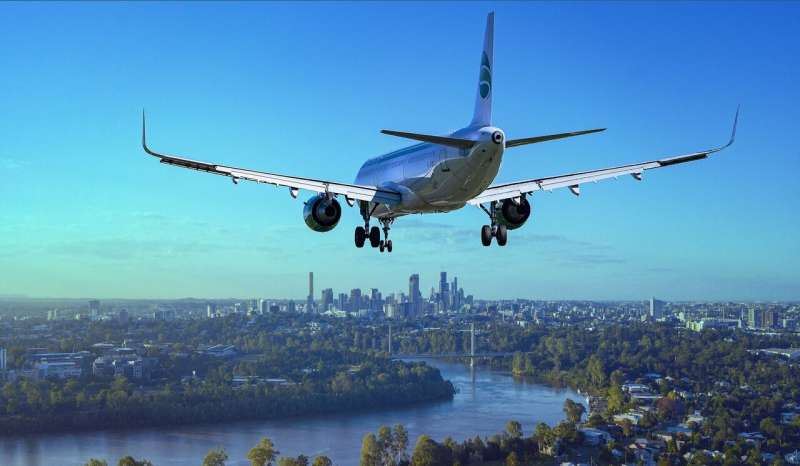Credit: CC0 Public Domain
Airline ticket sales fell sharply at the end of 2021, the International Air Transport Association (IATA) said Wednesday, blaming governments for having "over-reacted" to the Omicron COVID variant by closing borders.
The IATA, which groups over 290 airlines, said international air travel had been slowly but steadily recovering from the mass shutdowns of 2020 and early 2021 before the fast-spreading Omicron strain was discovered at the end of November.
Ticket sales in November were 60.5 percent below their pre-pandemic November 2019 level, marking an improvement on the 64.8 percent decline recorded a month earlier.
"Unfortunately, governments over-reacted to the emergence of the Omicron variant at the close of the month and resorted to the tried-and-failed methods of border closures, excessive testing of travellers and quarantine to slow the spread," IATA president Willie Walsh accused.
"Not surprisingly, international ticket sales made in December and early January fell sharply compared to 2019, suggesting a more difficult first quarter than had been expected," he added.
IATA members account for 83 percent of global air traffic.
In October, the association forecast cumulative industry losses of $11.6 billion in 2022, down from an estimated $51.8 billion in 2021 and $137.7 billion in 2020.
The International Civil Aviation Organization said separately on Wednesday that preliminary data shows the number air passengers was down by 49 percent last year from pre-pandemic levels in 2019.
That was an improvement from the 60 percent drop in 2020.
The ICAO, a UN body, said airlines lost out on $324 billion in revenue last year due to the drop in traffic, which was less than $372 billion in lost revenue in 2020.
It forecast an improvement in 2022 to a drop in passengers of between 26 and 31 percent, and lost revenue between $186 and $217 billion, with the international segment to continue to be the worst hit.
The IATA said it expected US airlines to turn profits again this year but that European carriers, which operate more long-haul flights and are therefore more exposed to border closures, would remain in the red.
© 2022 AFP
























